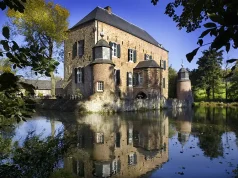
Over time, the idea of escaping to a remote cabin has been based solely on romantic trips, where couples get special time to themselves. However, It is now meant to be a logical response to sustained cognitive overload. Considering how notifications, streaming content, and social media have reshaped human attention into a fragmented state; the mind has been prone to operate in partial focus and minimal cognitive cycle.
This has resulted in low memory retention, decision quality, and lack of emotional stability. Below, we’ll explore how a remote cabin getaway can help remove both the stimulus and the habit loop that are caused by digital addictions.
The Necessity of Routine Getaway for the Brain
Digital dependence does not only affect the behavioural aspect of humans, it also has a significant impact on the environment and daily routines. For instance, when devices are constantly being used, the brain expends cognitive energy resisting them, which can lead to energy drain and intense form of fatigue.
A remote setting with weak or nonexistent connectivity also removes the need for constant self-control. This absence of digital input creates what neurologists refer to as cognitive quiet, which is essential for healthy development of the brain.
Without a steady stream of external prompts, the brain shifts into a slower frequency of operation, causing the adrenaline and cortisol to gradually subsides. What replaces it is a more stable neurological state associated with clarity, memory consolidation, and emotional regulation, allowing the mind to stop reacting and start processing.
Overall, a romantic cabin getaway creates an atmosphere where there will be no need to ignore work notifications and emails, as there would be enough time to focus on one’s mental and physical health.
How Nature Acts as a Neurological Reset Button
Cabins positioned in natural environments shift sensory input from artificial to organic. Instead of fluorescent light and traffic noise, there is daylight with close proximity to trees, birds and fresh water.
This neurological shift is particularly important for people experiencing burnouts in the workplace, as natural environments engage in soft fascination, a psychological state that increases attention span in a gentle manner rather than aggressively, thereby freeing cognitive resources in urban settings that are constantly overused.
Even brief exposure to forested or mountainous landscapes has been shown to improve mood and cognitive flexibility. Hence, in its entirety, it helps to solve mental fatigue that cannot be solved by sleep alone, allowing creative thinking to increase, and emotional responses stabilize.
The Duration and Depth of Undergoing These Changes
If you’re planning on cabin getaways, you don’t have to spend more than your limits, as even a single night in a remote environment can produce measurable impact and yield genuine cognitive recalibration.
The first and second day can often be spent shedding mental residue while the third day is when measurable shifts occur, as sleep deepens, anxiety reduces, creativity increases, and emotional responses stabilize.
This timeframe allows for new mental habits to form, where the nervous system begins to consider calm as the baseline rather than the exception. When an individual returns to normal environments, there is often a natural reduction in digital consumption without conscious effort.
Endnote
A remote cabin getaway does not solve external complexity, instead it restores internal order by removing distraction, revealing clarity and returning focus. In an era defined by constant addition, these changes are considered the most effective form of self-preservation.





